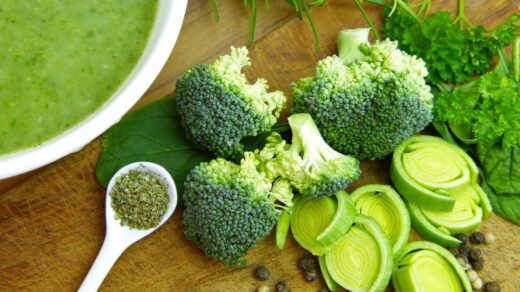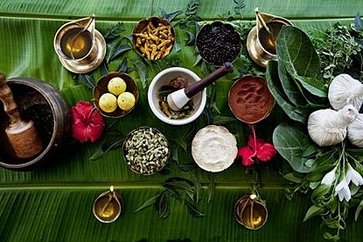Ayurvedic Antioxidants: Foods to Boost Your Health Natural
by Ayurvedic India 15/04/2021
Ayurveda, an ancient system of medicine originating from India, is a holistic approach to health that seeks to balance the mind, body, and spirit. Rooted in the Sanskrit words “ayur” (life) and “Veda” (knowledge), Ayurveda emphasizes the interconnectedness of physical, mental, and spiritual well-being. 
It operates on the principles of balancing the three doshas—Vata, Pitta, and Kapha—that represent different elemental forces within the body. Through personalized diet, lifestyle practices, and natural remedies, Ayurveda aims to promote harmony and prevent illness.
What Are Antioxidants?
Antioxidants are compounds that protect cells from damage caused by oxidative stress. Oxidative stress occurs when there is an imbalance between free radicals—unstable molecules that can damage cellular structures—and the body’s ability to neutralize them.
Antioxidants neutralize free radicals by donating electrons, thus preventing cellular damage and reducing the risk of chronic diseases.
The Importance of Antioxidants
Antioxidants play a crucial role in maintaining health by neutralizing free radicals, which are unstable molecules that can cause oxidative stress and damage cells.
Oxidative stress is linked to a variety of chronic diseases, including cardiovascular conditions, diabetes, and cancer.
By neutralizing free radicals, antioxidants help protect cells from damage, support immune function, and promote overall vitality. They are essential in slowing down the aging process and maintaining optimal health.
Ayurveda’s Emphasis on Natural Antioxidants
In Ayurveda, maintaining health and preventing disease involves incorporating natural antioxidants into daily life. Ayurveda emphasizes the use of whole foods, herbs, and spices that are rich in antioxidants to balance the doshas and support bodily functions.
Foods such as berries, turmeric, and green leafy vegetables, along with herbs like amla and ashwagandha, are renowned for their antioxidant properties.
Ayurveda integrates these natural antioxidants into dietary recommendations and therapeutic practices, recognizing their role in promoting longevity, enhancing vitality, and maintaining equilibrium within the body.
How Antioxidants Work in the Body
Antioxidants work by neutralizing free radicals, thereby preventing them from causing oxidative damage to cells, proteins, and DNA.
Free radicals are highly reactive and can initiate chain reactions that lead to cellular damage. Antioxidants counteract this process by donating electrons to free radicals without becoming unstable themselves.
This stabilizes the free radicals and prevents them from causing further damage. By protecting cells from oxidative stress, antioxidants support overall health, reduce inflammation, and contribute to the prevention of chronic diseases.
Different Types of Antioxidants
Antioxidants come in various types, including vitamins like Vitamin C and E, which protect cells from oxidative damage, and polyphenols found in fruits, vegetables, and herbs, which neutralize free radicals and reduce inflammation. Each type plays a unique role in supporting overall health and combating disease.
1. Vitamin-Based Antioxidants:
- Vitamin C: A water-soluble antioxidant that protects cells from damage, supports immune function, and aids in collagen production. Found in citrus fruits, strawberries, and bell peppers.
- Vitamin E: A fat-soluble antioxidant that protects cell membranes from oxidative damage. Found in nuts, seeds, and vegetable oils.
2. Mineral-Based Antioxidants:
- Selenium: A trace mineral that works in conjunction with other antioxidants to neutralize free radicals. Found in Brazil nuts, seafood, and whole grains.
- Zinc: A mineral that supports the antioxidant enzyme system and helps protect against cellular damage. Found in meat, dairy products, and legumes.
3. Phytonutrients:
- Flavonoids: Plant compounds with antioxidant properties that help reduce inflammation and oxidative stress. Found in fruits, vegetables, tea, and dark chocolate.
- Carotenoids: A group of pigments that include beta-carotene (which converts to vitamin A), lutein, and zeaxanthin. Found in colorful fruits and vegetables like carrots, spinach, and sweet potatoes.
4. Enzymatic Antioxidants:
- Superoxide Dismutase (SOD): An enzyme that converts superoxide radicals into less harmful molecules. Found in fruits, vegetables, and whole grains.
- Catalase: An enzyme that helps break down hydrogen peroxide into water and oxygen, reducing oxidative stress. Found in various tissues and foods.
By understanding and incorporating these different types of antioxidants into your diet, you can help protect your body from oxidative damage and support overall health.
The Role of Antioxidants in Ayurveda
Ayurveda, the ancient system of medicine from India, views health as a state of balance between the body’s three doshas—Vata, Pitta, and Kapha.
Wellness in Ayurveda is achieved through a harmonious balance of these doshas, proper digestion, and a healthy lifestyle.
Ayurveda emphasizes the interconnectedness of physical health, mental clarity, and spiritual well-being, advocating for a holistic approach that integrates diet, lifestyle, and natural remedies to maintain this balance.
How Antioxidants Fit into Ayurvedic Principles
In Ayurveda, antioxidants are seen as crucial for maintaining balance and promoting optimal health. They align with Ayurvedic principles by:
1. Balancing the Doshas: Antioxidants help reduce oxidative stress, which can disturb the balance of doshas. By neutralizing free radicals, antioxidants support the body’s natural equilibrium, preventing dosha imbalances that can lead to illness.
2. Supporting Agni (Digestive Fire): Ayurveda places great importance on Agni, the digestive fire, which is central to health. Antioxidants can support Agni by improving digestion and reducing inflammation, thus aiding in the effective assimilation of nutrients.
3. Promoting Ojas: Ojas represent the vital essence that sustains life and provides vitality. Antioxidants support the production and maintenance of Ojas by protecting cells from oxidative damage, enhancing overall vitality, and preventing premature aging.
Top 5 Ayurvedic Herbs Rich in Antioxidants
Common Ayurvedic herbs rich in antioxidants include Amla, known for its high Vitamin C content, and Tulsi, which provides powerful protective effects against oxidative stress.
These herbs are integral to Ayurvedic practices for enhancing overall health and vitality. below are a few lists:
1. Amla (Emblica officinalis):
- Properties: Amla, also known as Indian gooseberry, is highly revered in Ayurveda for its potent antioxidant properties. It is rich in Vitamin C and polyphenols.
- Benefits: Supports immune function, promotes healthy skin, and helps in detoxification. Amla is used to balance all three doshas and enhance overall vitality.
2.Turmeric (Curcuma longa):
- Properties: Contains curcumin, a powerful antioxidant with anti-inflammatory properties.
- Benefits: Supports joint health, improves digestion, and enhances cognitive function. Turmeric is often used to balance Pitta and Kapha doshas.
3. Ashwagandha (Withania somnifera):
- Properties: Known as an adaptogen, Ashwagandha has antioxidant properties that help combat stress and fatigue.
- Benefits: Enhances resilience to stress, supports adrenal function, and improves energy levels. It is beneficial for balancing Vata dosha.
4. Brahmi (Bacopa monnieri):
- Properties: Rich in saponins and antioxidants that support brain health and mental clarity.
- Benefits: Improves cognitive function, reduces stress, and supports overall mental well-being. Brahmi is used to balance Pitta and Vata doshas.
5. Tulsi (Ocimum sanctum):
- Properties: Also known as Holy Basil, Tulsi has significant antioxidant and adaptogenic properties.
- Benefits: Supports respiratory health, enhances immune function, and reduces stress. Tulsi is used to balance all three doshas, particularly Pitta and Vata.
Incorporating these antioxidant-rich herbs into daily life aligns with Ayurvedic principles and supports overall health by maintaining dosha balance, enhancing digestion, and promoting vitality.
Top 6 Health Benefits of Antioxidants
Antioxidants provide significant health benefits by neutralizing free radicals, which helps reduce oxidative stress and inflammation, thereby supporting immune function and slowing the aging process.
1. Antioxidants Support the Immune System
Antioxidants bolster the immune system by neutralizing free radicals that can damage immune cells and hinder their function.
By reducing oxidative stress, antioxidants help maintain the integrity of immune cells, enhancing the body’s ability to fend off infections and diseases. This support helps in maintaining a robust and responsive immune system.
Ayurvedic Herbs That Enhance Immunity
- Amla (Emblica officinalis): Rich in Vitamin C and antioxidants, Amla boosts immune function and enhances the body’s resistance to infections.
- Tulsi (Ocimum sanctum): Known for its adaptogenic and antioxidant properties, Tulsi helps strengthen the immune system and fight off pathogens.
- Ashwagandha (Withania somnifera): Supports immune function by reducing stress and enhancing overall vitality.
2. The Antioxidants food Slows the Aging Process
Antioxidants combat oxidative stress, which is a key factor in the aging process. By neutralizing free radicals, antioxidants protect cells from damage.
Thereby reducing signs of aging such as wrinkles, fine lines, and loss of elasticity. They also support cellular repair and regeneration, promoting a more youthful appearance.
Ayurvedic Practices to Incorporate Antioxidants
- Consume Antioxidant-Rich Foods: Include fresh fruits like Amla and berries, and vegetables such as spinach and broccoli in your diet.
- Use Ayurvedic Herbs: Incorporate herbs like Turmeric and Brahmi, which are known for their anti-aging properties, into daily routines.
- Practice Detoxification: Regular detox practices, such as Panchakarma, can help enhance the effectiveness of antioxidants.
3. Antioxidants food works as Anti-Inflammatory Agents
Antioxidants help reduce inflammation by neutralizing free radicals that contribute to inflammatory processes. By protecting cells from oxidative damage, antioxidants can mitigate chronic inflammation, which is linked to various health conditions, including arthritis and heart disease.
Ayurvedic Remedies for Inflammation
- Turmeric (Curcuma longa): Contains curcumin, a powerful anti-inflammatory agent that helps reduce inflammation and pain.
- Ginger (Zingiber officinale): Known for its anti-inflammatory properties, ginger can help alleviate symptoms of inflammation and improve joint health.
- Ashwagandha (Withania somnifera): Helps reduce inflammation and stress, promoting overall well-being.
4. Antioxidant foods are the best Detox
Detoxification, or Panchakarma, is a fundamental practice in Ayurveda aimed at cleansing the body of toxins (ama). By removing accumulated waste and balancing the doshas, detoxification supports optimal health and vitality.
How Antioxidants Aid in Detoxification
Antioxidants support detoxification by neutralizing free radicals and reducing oxidative stress, which can damage cells and hinder the detoxification process.
They also support the liver, a key organ in detoxification, by enhancing its ability to process and eliminate toxins.
5. Antioxidants are good for Cardiovascular Health
Antioxidants help protect the cardiovascular system by reducing oxidative stress and preventing damage to blood vessels. They support healthy blood flow, reduce cholesterol oxidation, and lower the risk of heart disease and hypertension.
Ayurvedic Herbs for Heart Health
- Arjuna (Terminalia Arjuna): Known for its cardiovascular benefits, Arjuna supports heart function and helps regulate blood pressure.
- Guggul (Commiphora wightii): Helps manage cholesterol levels and supports overall heart health.
- Garlic (Allium sativum): Contains compounds that reduce oxidative stress and support cardiovascular health.
6. Antioxidants are best for Skin health
Antioxidants protect the skin from oxidative damage caused by environmental stressors like UV radiation and pollution.
They help reduce signs of aging, improve skin elasticity, and promote a healthy, radiant complexion by supporting cellular repair and regeneration.
Ayurvedic Skincare Routines Rich in Antioxidants
- Use Antioxidant-Rich Face Masks: Incorporate turmeric, honey, and Amla into skincare routines for their antioxidant benefits.
- Consume a Balanced Diet: Include foods high in antioxidants, such as fruits, vegetables, and nuts, to support skin health from within.
- Herbal Infusions: Drink herbal teas made from Tulsi or Green Tea to provide additional antioxidants and support skin health.
By integrating antioxidants into your lifestyle and Ayurvedic practices, you can enhance overall health, support vital bodily functions, and promote a vibrant, youthful appearance.
Top 5 Ayurvedic Antioxidant-Rich Foods
Ayurvedic antioxidant-rich foods offer potent health benefits by reducing oxidative stress and inflammation. Incorporating these foods into your diet supports immune function, enhances vitality, and promotes overall well-being. below are a few lists.
1. Turmeric
Turmeric, or Curcuma longa, is a cornerstone of Ayurvedic medicine known for its powerful antioxidant and anti-inflammatory properties.
The active compound in turmeric, curcumin, plays a crucial role in reducing oxidative stress and inflammation. Turmeric is used in various Ayurvedic formulations to enhance digestion, support joint health, and promote overall well-being.
It is often incorporated into daily meals, teas, and traditional Ayurvedic remedies for its health benefits.
2. Amla (Indian Gooseberry)
Amla, or Emblica officinalis, is renowned for its high Vitamin C content and potent antioxidant properties. It is a rich source of polyphenols and flavonoids, which contribute to its powerful ability to neutralize free radicals and support immune function.
In Ayurveda, Amla is valued for its role in rejuvenating the body, improving digestion, and enhancing skin health. It is commonly consumed as a raw fruit, in powdered form, or as part of traditional Ayurvedic supplements.
3. Ashwagandha
Ashwagandha, or Withania somnifera, is a revered adaptogen in Ayurveda known for its ability to help the body adapt to stress. Its antioxidant properties support cellular health by reducing oxidative stress and inflammation.
Ashwagandha is used to enhance vitality, improve mental clarity, and support immune function. It is typically consumed in powdered form, as a supplement, or incorporated into herbal teas.
4. Tulsi (Holy Basil)
Tulsi, or Ocimum sanctum, is considered a sacred herb in Ayurveda and is celebrated for its comprehensive health benefits. It possesses significant antioxidant properties that help protect the body from oxidative damage and support immune health.
Tulsi is also known for its adaptogenic and anti-inflammatory effects. It is commonly used in teas, tinctures, and as a culinary herb to enhance well-being and support overall health.
5. Ghee
Ghee, or clarified butter, is a staple in Ayurvedic cooking and is highly valued for its health benefits. It contains butyrate and antioxidants that support digestion, enhance nutrient absorption, and reduce inflammation.
Ghee is used as a cooking medium, in medicinal preparations, and as an integral part of Panchakarma detox therapies. Its rich, nutty flavor and health benefits make it a versatile and cherished component of Ayurvedic nutrition.
Incorporating Antioxidants into Your Daily Routine
- Add Turmeric to Meals: Use turmeric in curries, soups, and stews, or create a golden milk latte with turmeric, milk, and a touch of black pepper for enhanced absorption.
- Include Amla in Your Diet: Consume Amla as fresh fruit, dried powder, or as part of traditional Ayurvedic formulations like Chyawanprash to boost Vitamin C intake.
- Integrate Ashwagandha: Mix Ashwagandha powder into smoothies, and teas, or take it as a supplement to help manage stress and support overall vitality.
- Enjoy Tulsi Tea: Brew Tulsi leaves into a soothing tea, or use Tulsi extracts as part of your daily health regimen to benefit from its antioxidant and adaptogenic properties.
- Cook with Ghee: Use ghee as a cooking fat or in place of butter in recipes to enjoy its health benefits and enhance the flavor of your dishes.
By integrating Ayurvedic antioxidant-rich foods and practices into your daily routine, you can enhance your health, vitality, and overall well-being, aligning with timeless wisdom for a balanced life.
Tags: Antioxidant food listantioxidant foodsAntioxidant foods benefitsAntioxidant foods in IndiaAntioxidant supplements benefits

























